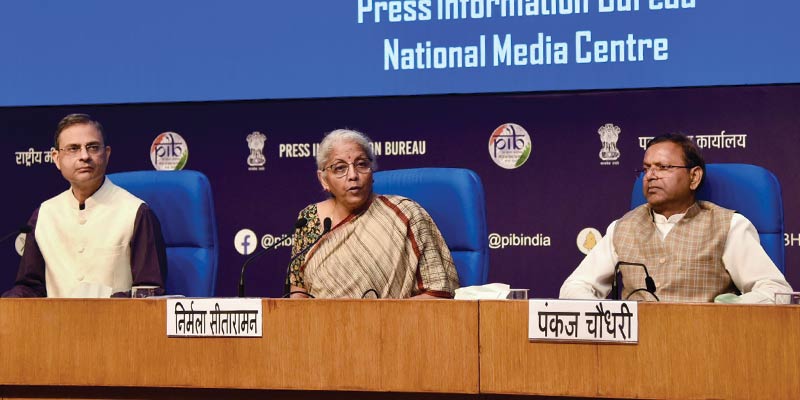- India
- Jun 23
GST Council provides tax exemptions for railway services, hostel stay
The 53rd GST Council met under the chairpersonship of Union Minister for Finance & Corporate Affairs Nirmala Sitharaman in New Delhi on June 22.
GST Council
• Goods and Services Tax Council is a constitutional body for making recommendations to the Union and state government on issues related to GST.
Composition:
• The chairperson of the GST Council is the Union Finance Minister.
• A member of the GST Council includes the Union Minister of State in charge of revenue or finance.
• Each state government nominates a minister responsible for finance or taxation, or another designated minister, as a member of the GST Council.
• The role of vice-chairperson rotates among the state representatives.
• The chairperson of the Central Board of Excise and Customs (CBEC) attends as a permanent invitee to the GST Council but without voting rights.
• The secretary of the revenue department serves as the ex-officio secretary to the GST Council.
Powers of GST Council:
• A GST Council meeting requires at least 50 per cent of its total members to be present for decisions to be valid.
• Decisions of the GST Council are based on a majority of not less than three-fourths of the weighted votes of members present and voting.
• The central government holds one-third of the total votes, while states collectively have two-thirds weightage in voting.
Functions of GST Council:
• The GST Council determines which taxes, cesses, and surcharges are to be subsumed under GST.
• It decides on the goods and services to be taxed under GST and those exempted from GST.
• The council formulates GST laws and principles for levying and distributing GST on interstate trade.
• During natural disasters, the council may levy special rates or additional resources through GST for relief efforts.
• The council sets turnover thresholds below which businesses are exempted from GST.
• It decides on GST rates, including setting a floor rate and establishing rate bands.
• The council considers and implements special GST provisions for states like Arunachal Pradesh, Assam, Jammu & Kashmir, Manipur, Meghalaya, Mizoram, Nagaland, Sikkim, Tripura, Himachal Pradesh, and Uttarakhand.
Significance of GST Council:
• Decisions made by the GST Council are based on consensus among all participating states and the central government.
• It reinforces federal principles by involving states in decision-making on tax matters.
• The council addresses emerging challenges and issues related to GST implementation.
• It oversees IT readiness, conducts consultations, workshops, and training for stakeholders involved in GST implementation.
Some of the key decisions of 53rd GST Council meeting:
• The GST Council has recommended to roll-out the biometric-based Aadhaar authentication of registration applicants on pan-India basis in a phased manner. This will help check fraudulent registration done to avail input tax credit and evade taxes.
• The Council recommended to exempt accommodation services of up to Rs 20,000 per person per month from GST. This is subject to the condition that these services are supplied for a minimum continuous period of 90 days. It will provide relief to students and working professionals.
• Services provided by Indian Railways to the general public, namely, sale of platform tickets, facility of retiring rooms/waiting rooms, cloak room services and battery-operated car services as well as intra-railway transactions would be exempt from GST.
• To reduce litigation, the Council decided to fix a monetary limit for tax officers to file appeals before the GST Appellate Tribunal, the High Court and the Supreme Court at Rs 20 lakh, Rs 1 crore and Rs 2 crore, respectively.
• It also recommended reduction of the quantum of pre-deposit required to be paid by taxpayers for filing of appeals under GST.
• The maximum amount of pre-deposit for filing appeal with the appellate authority has been reduced from Rs 25 crore CGST and SGST each to Rs 20 crore CGST and SGST each. This will help ease cash flow and working capital blockage for the taxpayers.
• The next meeting of the GST Council will be held in August in which the Group of Ministers (GoM) on GST rate rationalisation under Bihar Deputy Chief Minister Sumant Chaudhary, will give a presentation on the status of the work and aspects covered by the panel and work pending before the panel.
Manorama Yearbook app is now available on Google Play Store and iOS App Store

